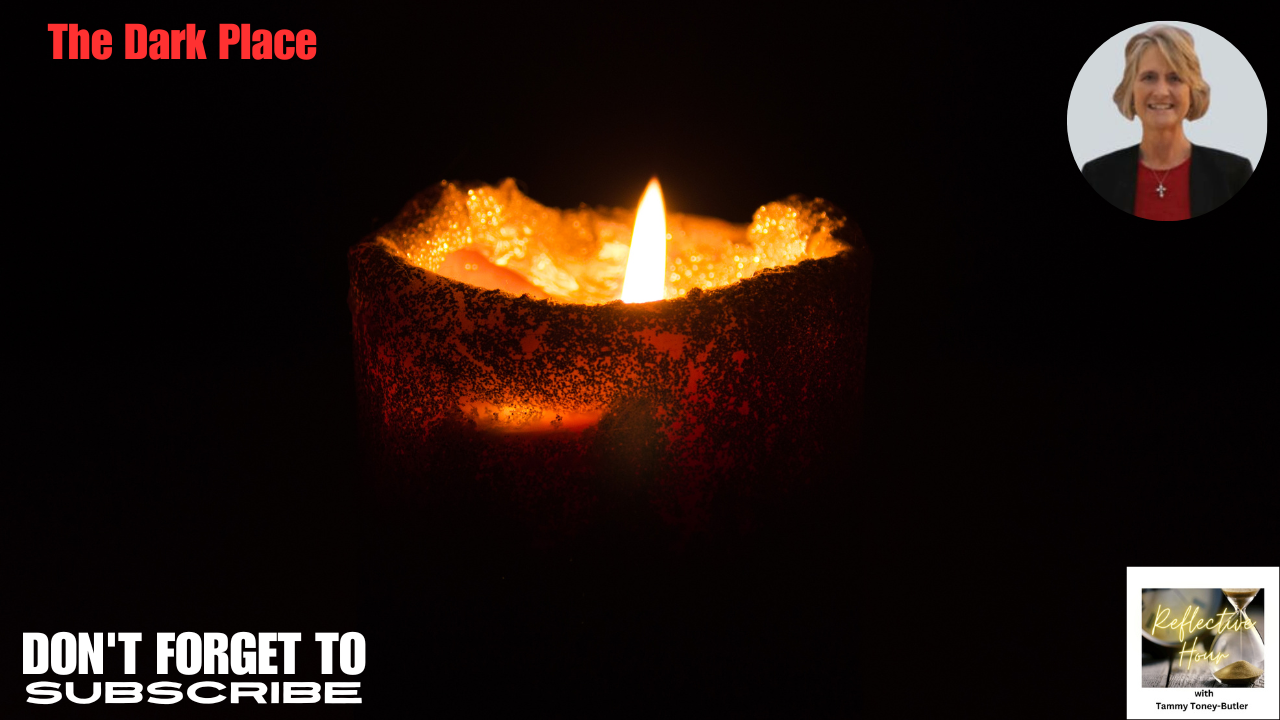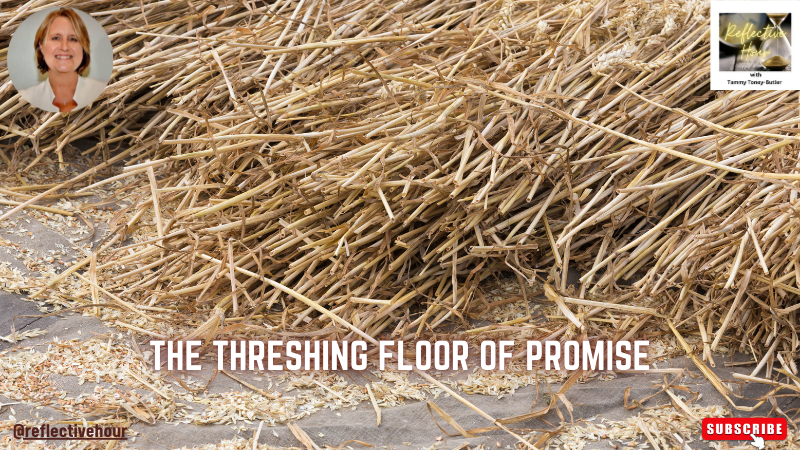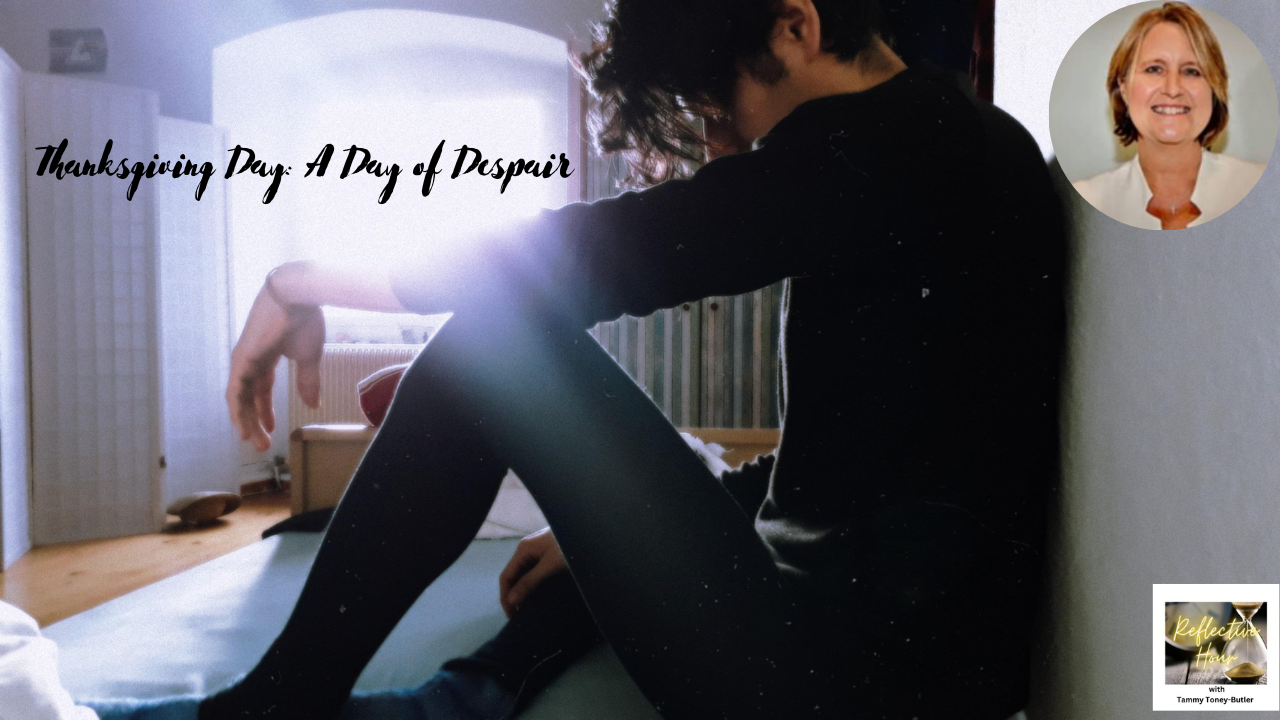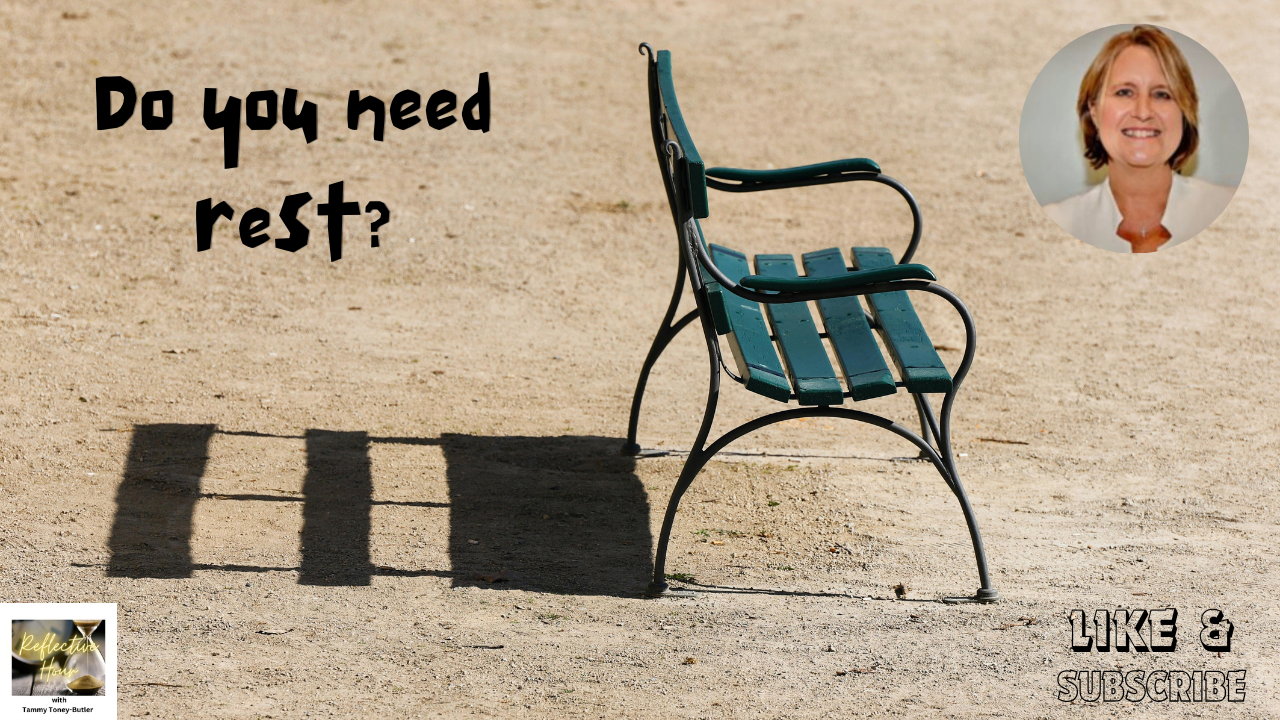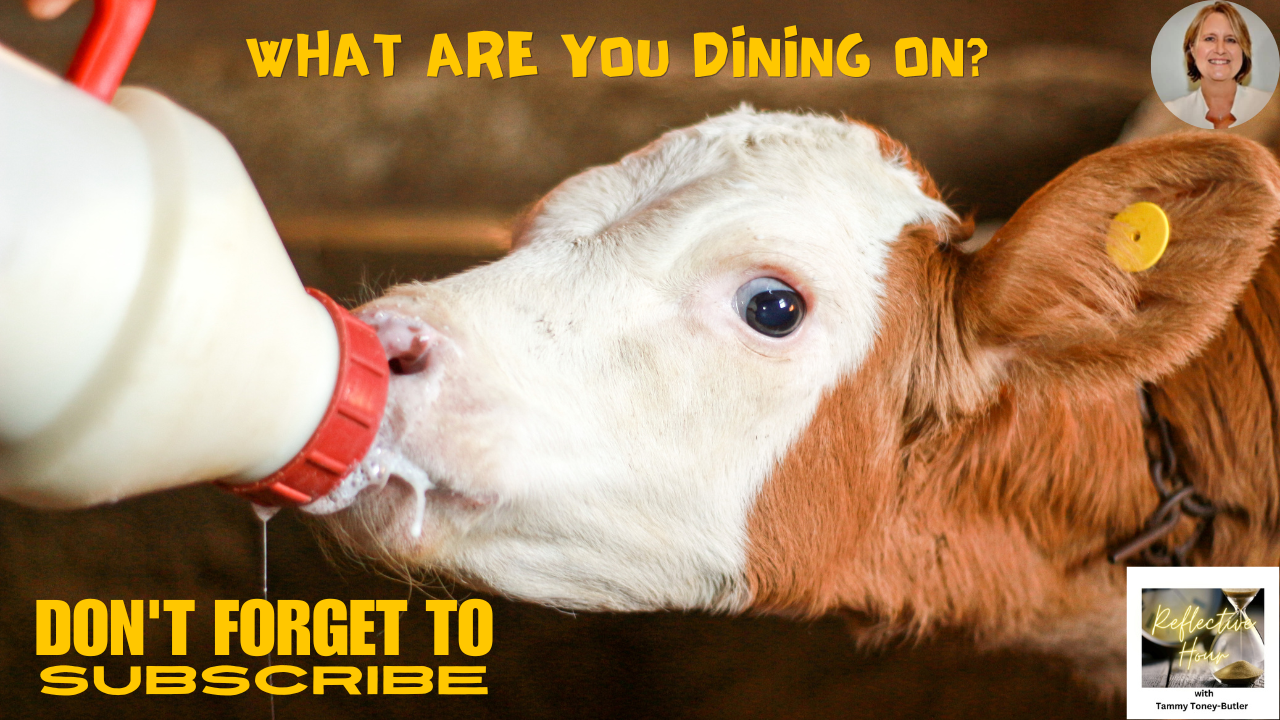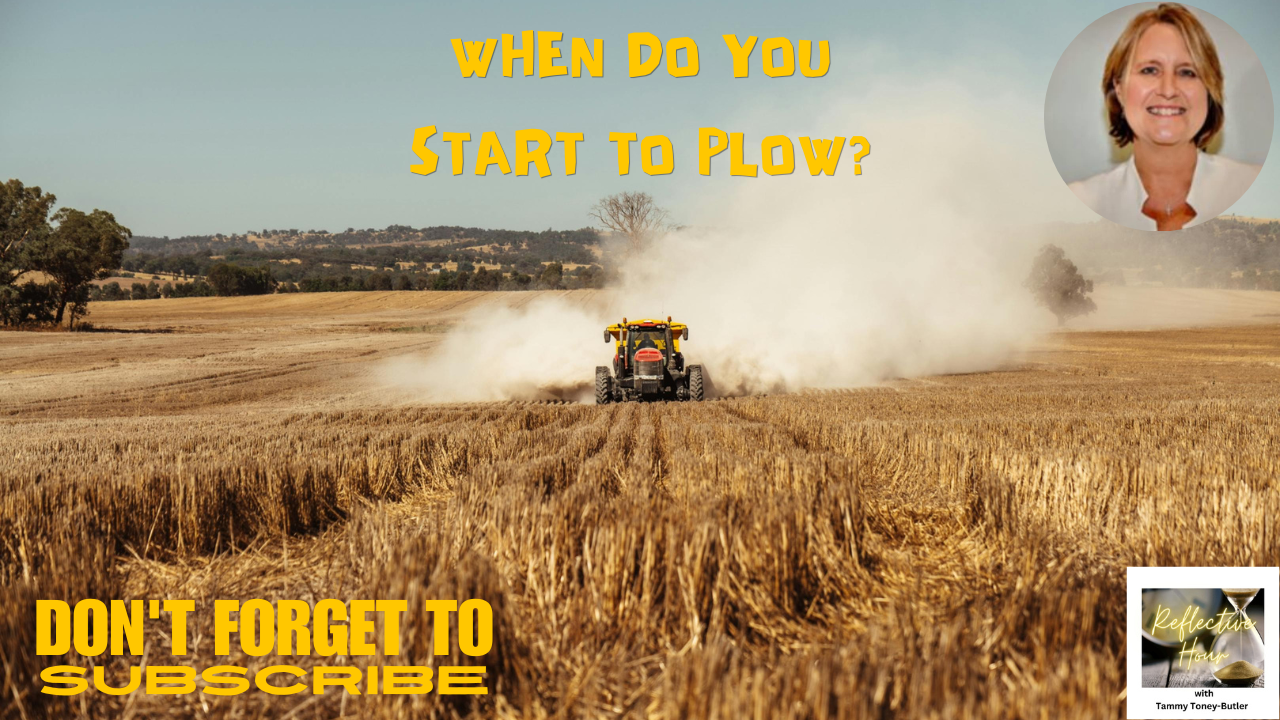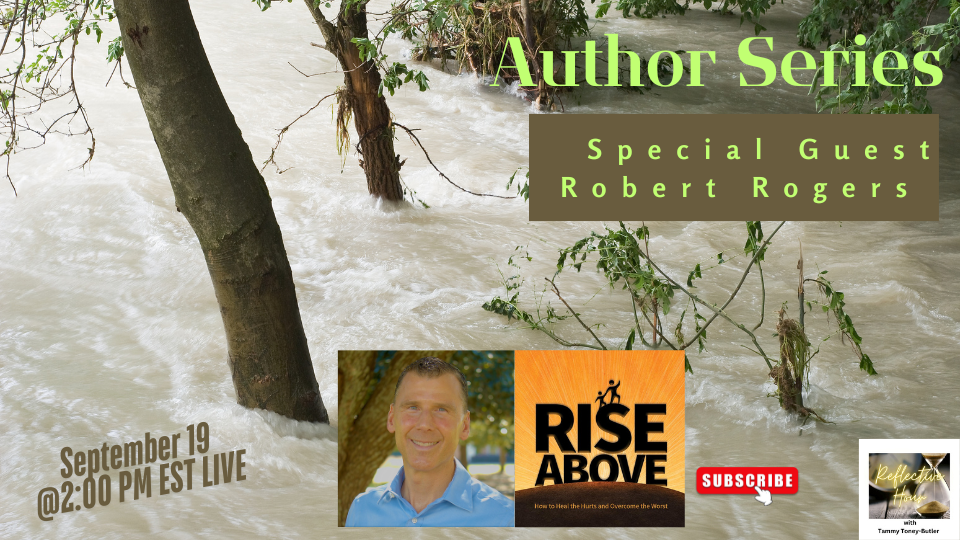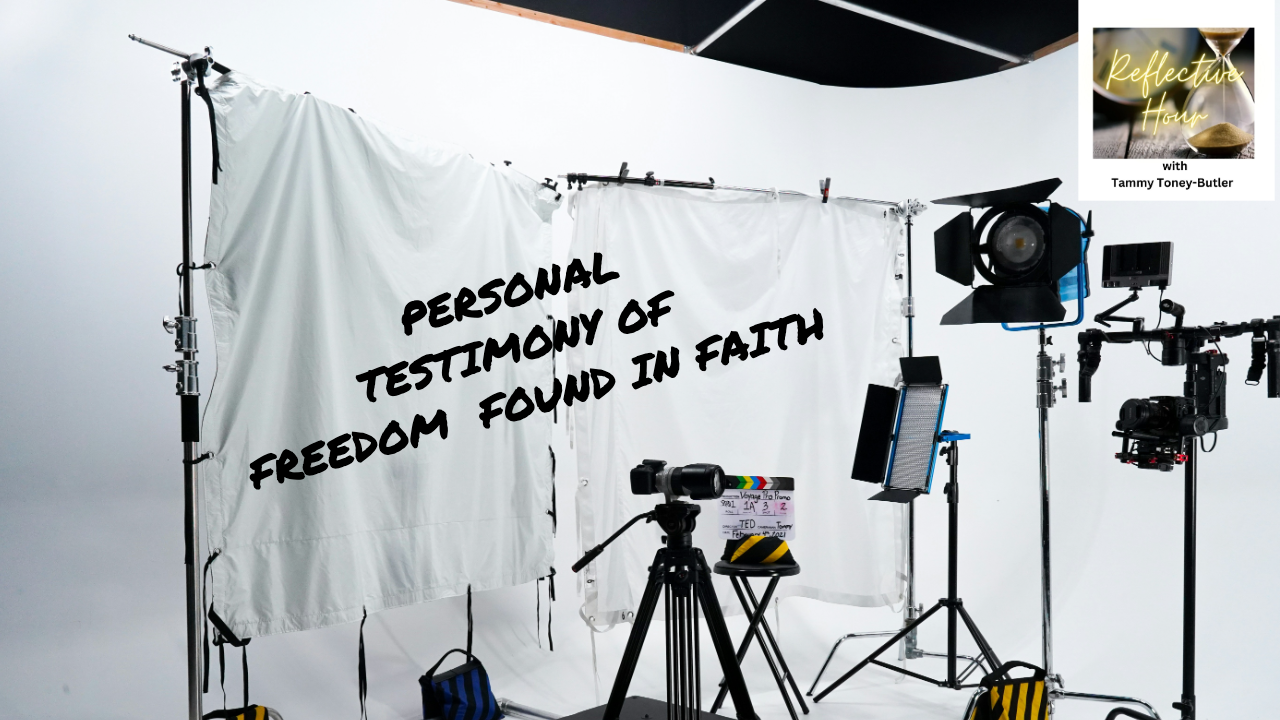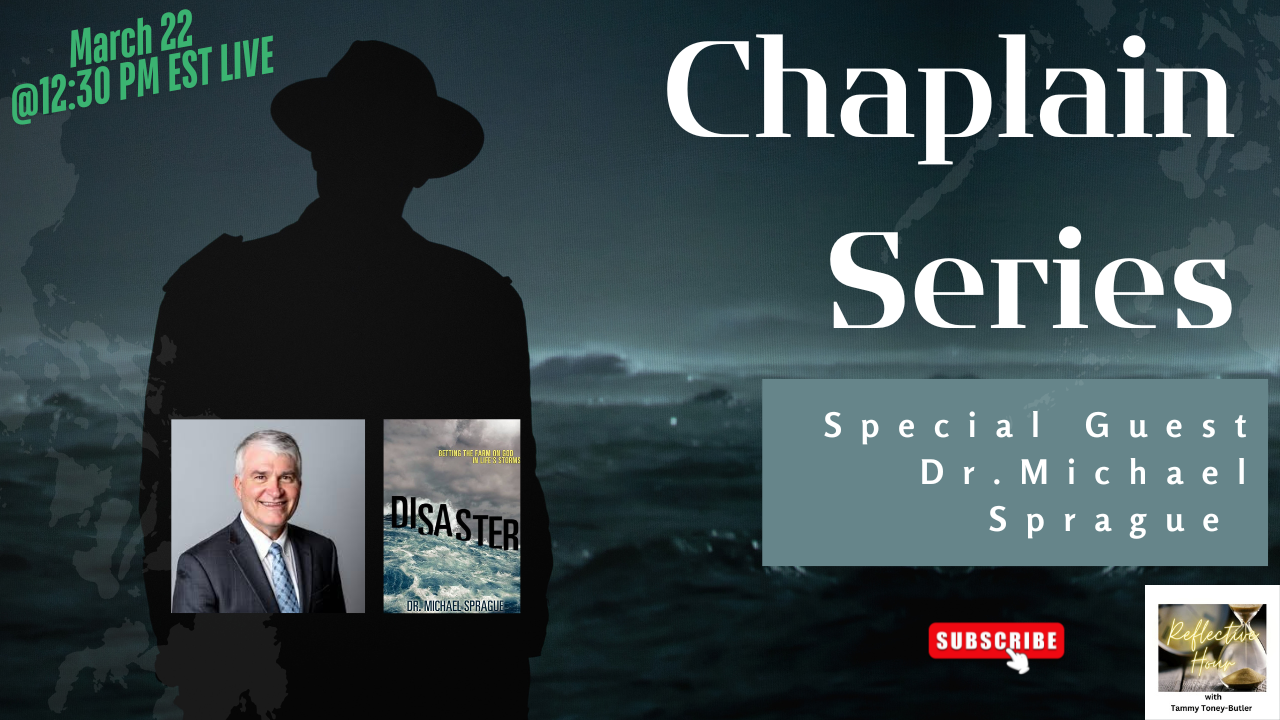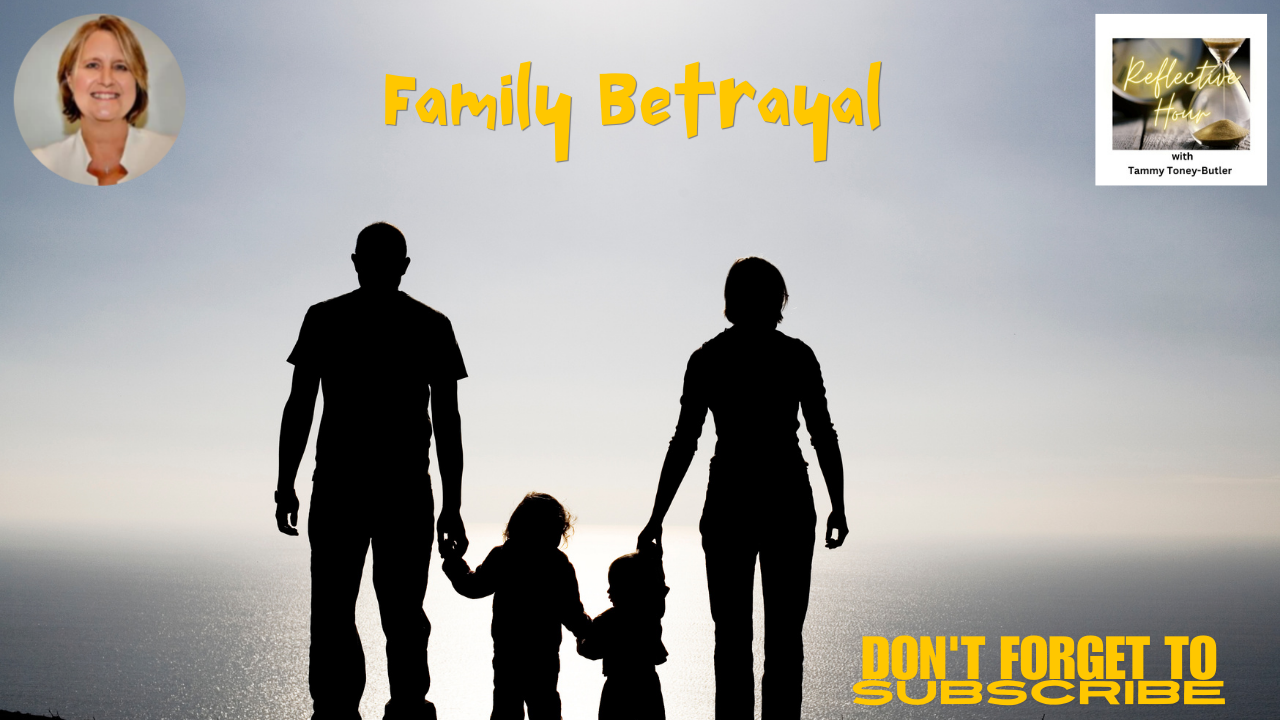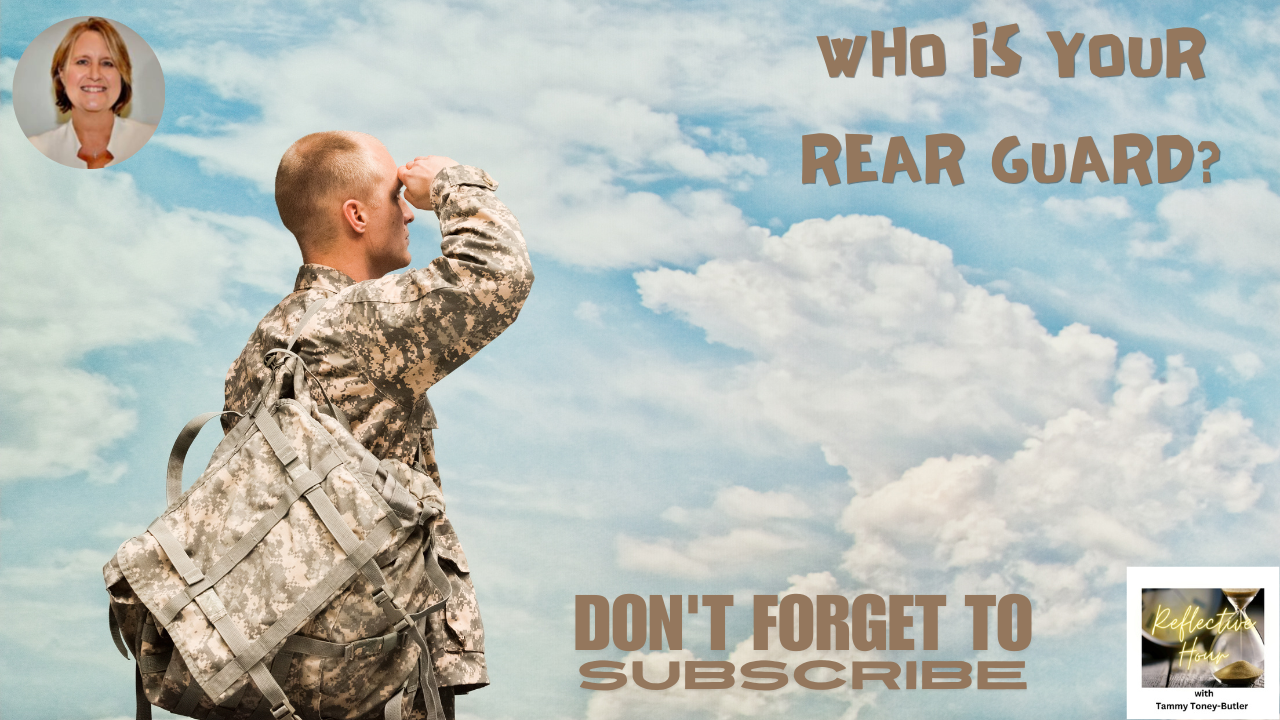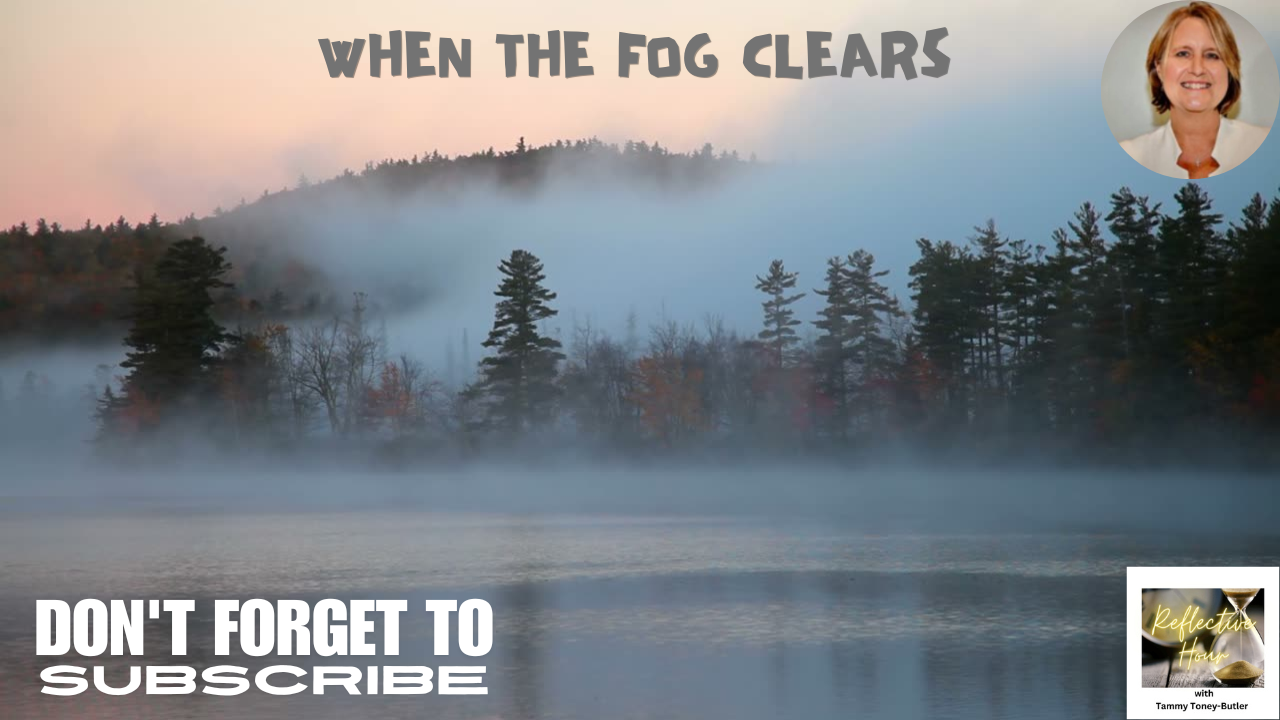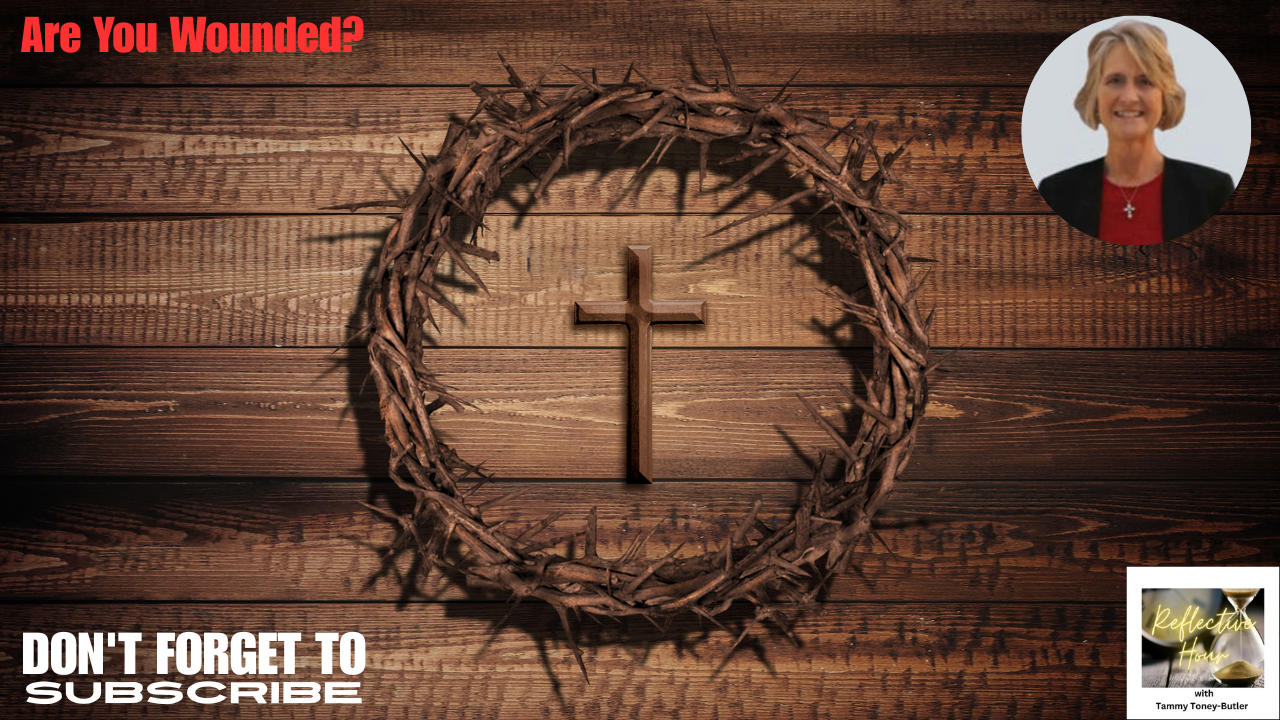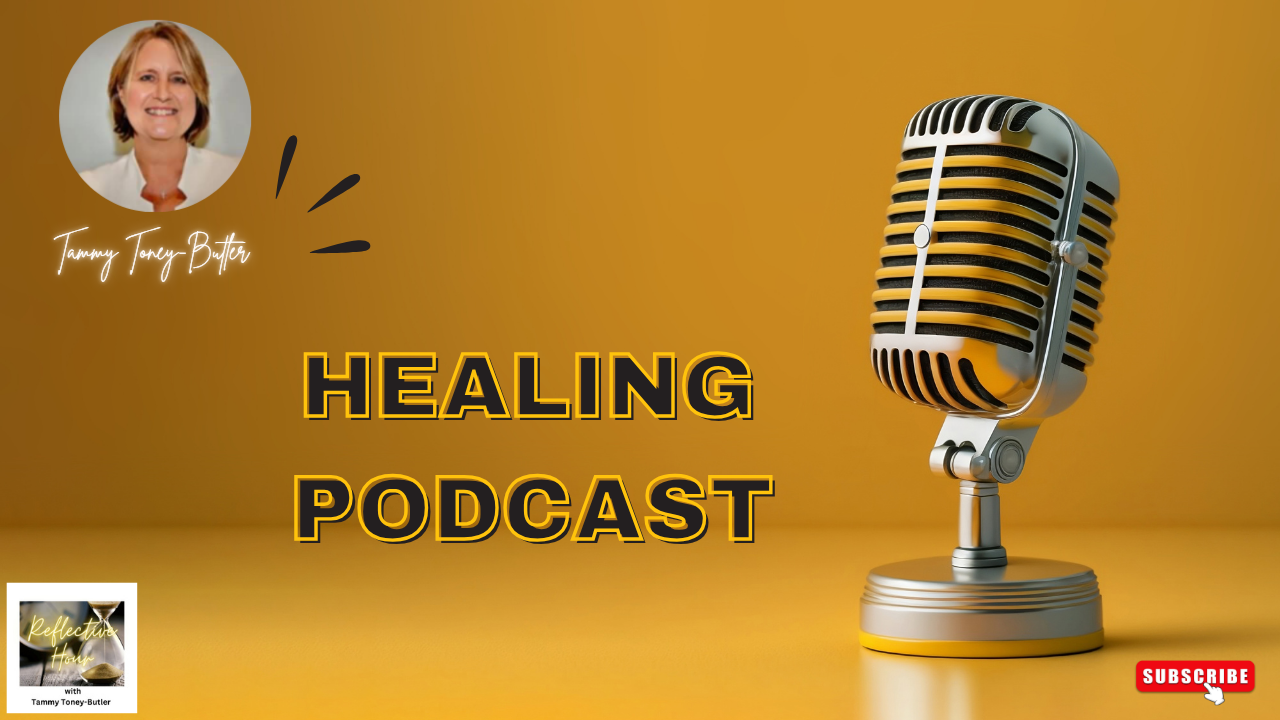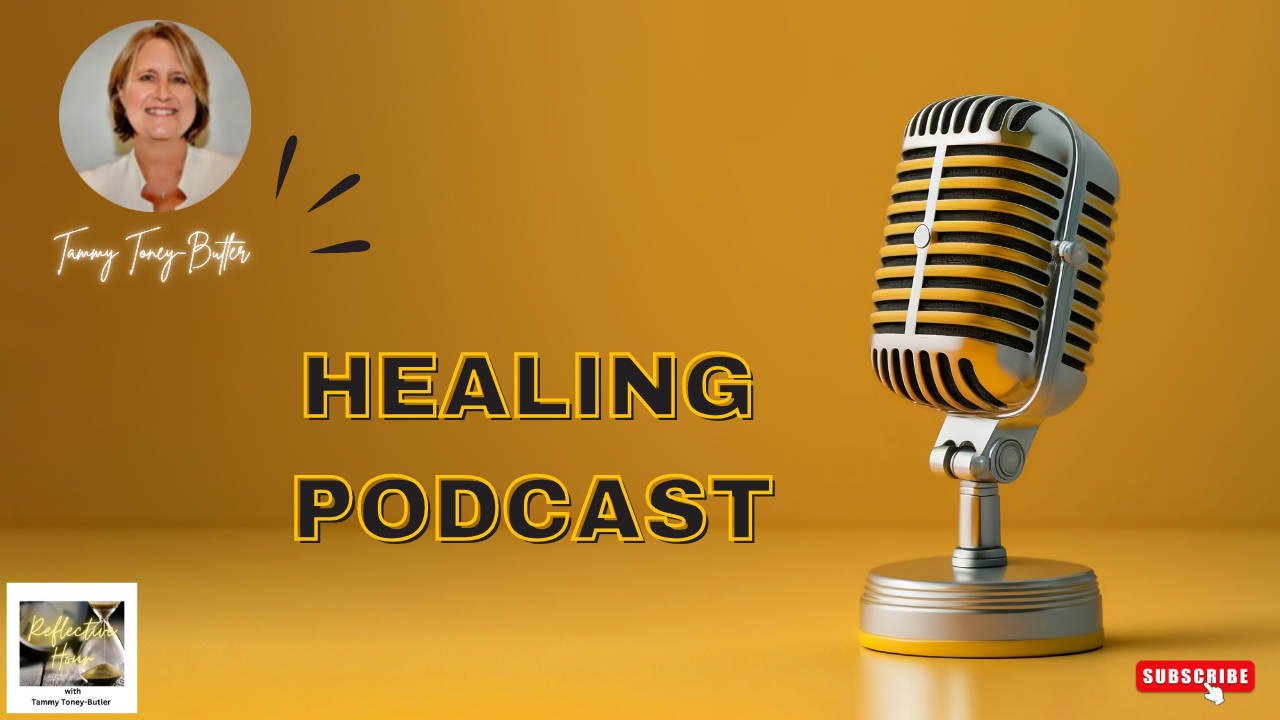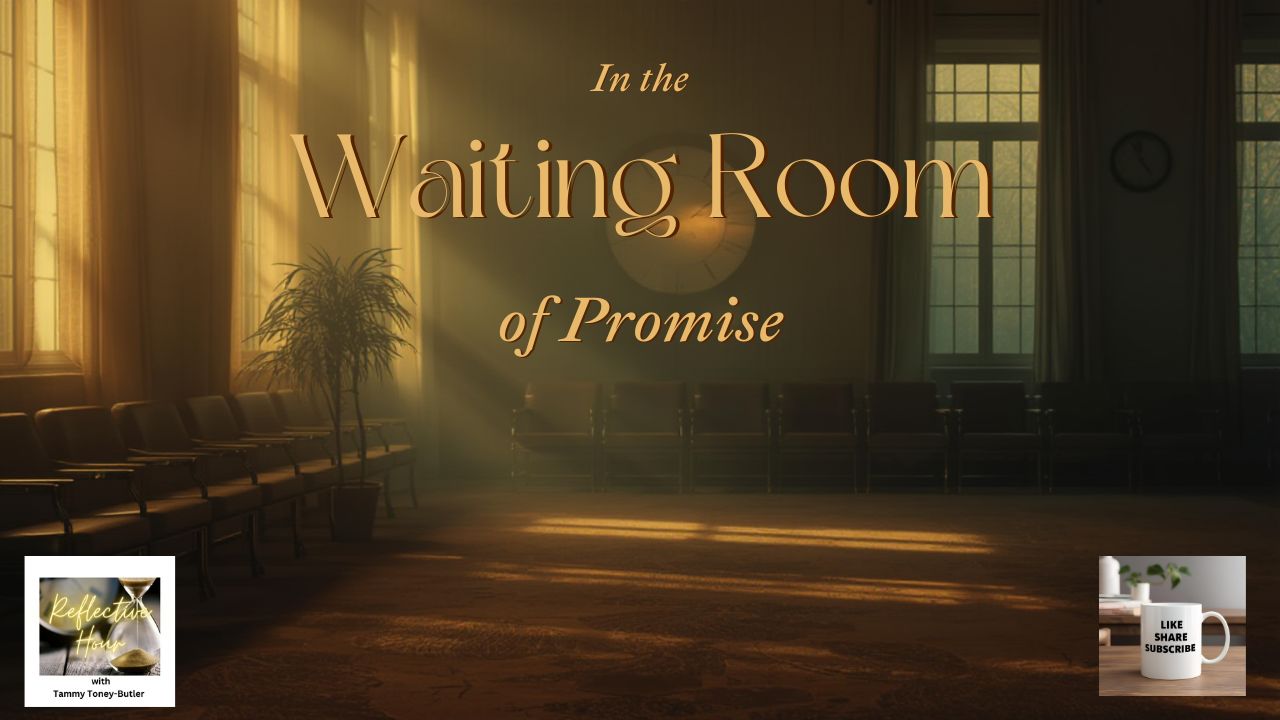Chaplain Series: Special Guest Dale Henderson

Chaplains are often in the shadows, working on the front lines after natural or man-made disasters. They serve in Congress, hospitals, prisons, hospice houses, addiction centers, cemeteries, and as first responders in the community and the military. Listen in, glean knowledge from their perspective, and see Jesus in a whole new way.
Join Tammy Toney-Butler, Healing Evangelist, and special guest Chaplain Dale Henderson in this episode of Reflective Hour.
Dale is a seasoned warrior in the fight of faith, bringing wisdom and insight to the battlefield. The unique insight Dale brings to the table will help us grow in faith, family, relationships, and many other areas. Dale's perspective has been shaped by years on the frontlines, and he utilizes it as a life coach and peer counselor.
Dale's love for first responders and their families, as well as the community and agencies in which they serve, really hits home with the timing of this episode, in the aftermath of the Texas floods. Our hearts go out to all those on the front lines today, who are working tirelessly to bring closure to families and communities across our Nation.
See Dale's bio below:
Dale Henderson is a dedicated Chaplain, Life Coach, and Peer Counselor with a deep commitment to serving others. With over 40 years in Public Safety, Mental Health Advocacy, and Christian Ministry, Dale brings a wealth of experience to his presentations and coaching. He recognizes the unique challenges faced by First Responders and their families.
Dale is committed to fostering positive change through his work. As the founder of Dale Henderson LLC, he channels his passion into empowering First Responders, their families, and the broader Communities and Agencies in which they serve. Dale’s focus revolves around building resilience, integrating life experiences, mitigating stress, and facilitating trauma healing.
At the heart of his mission lies the commitment to helping individuals navigate life’s complexities, cultivate inner strength, and foster holistic well-being. Dale’s approach is grounded in evidence-based practices, guided by compassion, and tailored to the unique needs of each client. Through transformative journeys of healing, guidance, and growth, Dale aims to lead others in establishing and maintaining lasting personal and professional well-being and resilience.
Follow Dale on LinkedIn: https://www.linkedin.com/in/dale-henderson-663ab2161/
Follow Dale on Facebook: https://www.facebook.com/ResponderLifeCoach
Book/resource/reference mentioned by Dale: https://resiliencegodstyle.com/
Website: www.reflectivespacesministry.com
Hotline Support: https://www.reflectivespacesministry.com/contactandhotlinesupport
Buy Me A Coffee
Please buy me a cup of coffee to support my work. Donations are gifts and not tax deductible.
Cash App
Support our show with a gift that is not tax deductible.
Disclaimer: This post contains affiliate links. If you make a purchase, I may receive a commission at no extra cost to you.
Please check out Tammy Toney-Butler's blog and prophetic healing ministry working directly with survivors of human trafficking, sexual assault, childhood trauma, intimate partner violence, and more at www.reflectivespacesministry.com.
Welcome to today's episode of Reflective Hour with Tammy Toney-Butler. I'm your host, but you all know who the host of this show is, and that's Christ. Holy Spirit, come have your way in this time that we have together. May they hear you and see you and not see us. Guide us, strengthen us, O God, this day as we seek to deliver your truth to your sheep to help set the captives free. Today, we have a special guest in our chaplain series, and we have Chaplain Dale Henderson with us. And it is such an honor to have Dale on the show and to glean from his expertise. We will link to his bio in the show notes. And we are just, again, grateful for our special guest, Chaplain Dale Henderson. He's a dedicated chaplain, life coach, and peer counselor. So now we are going to actually welcome the real Dale to the show. Hi, Dale. Thank you so much for joining us. Thank you. Thank you very much. And Dale, if you want to just tell us a little bit about yourself, that would be awesome. Well, without my notes, I don't know much about myself, to be perfectly honest with you. I'm here about thirty miles north of Atlanta. We found out that we share kind of the same roots and backgrounds up here in this area. But I've been in detention and law enforcement for, I think, I think this is my forty third year that I have done it. I am currently serving a small agency here in North Georgia. I've been in bivocational church ministry, as well as public safety for a very long time. Like I said, I'm in my forty-third year, I think. I am married, have two adult sons, and I know I'm kind of all over the place, but I'm trying to remember everything there is about me. I'm currently serving as a full-time deputy sheriff. I don't serve my agency as a chaplain per se, but do a lot of chaplain work. And I teach chaplains in different venues. But I am... I am just glad to be here, to be a part of your podcast. If I think of something a little bit later on, I will. Now, you did allude to the fact that I am a certified trained life coach. I am a certified chaplain. Life coaching is what I'm breaking into now. We'll be launching something probably within the next month or so. And I'm also a state of Georgia Department of Public Safety certified peer counselor. Now, I'm not a. Professional counselor, it's what we call up here a para-counselor position. So we do that and we work with first responders. I do critical incident stress debriefings, critical incident stress management, as well as all things peer support. If I think of something else, I'll spurt it out here in a little bit, but that's what's coming to mind right now. Oh, that's so great. Well, we're pretty relaxed on this show. And, you know, I reached out to you on LinkedIn or you reached out to me and we started dialoguing and realized that the, you know, the Holy Spirit had connected us. And this was back around in March and you were supposed to come on the show. And then my baby sister had died and we just knew it wasn't the right time. Well, in light of all the flooding in Texas and what has been going on there, and my heart just goes out to the first responders, my heart goes out to the families that have lost loved ones so much and so many children lost. And it really tugged on me to where I thought, well, maybe now's the right time to bring you onto the show. And so I've got a few questions to kind of lead us a little bit. And then we also can just sort of wing it and as the Holy Spirit inspires us, we will keep moving. And I know that this episode is going to touch the hearts of a lot of first responders, a lot of people that are on the front lines, frontline workers, those that are in prisons. And, you know, as a chaplain, you have a unique perspective. And as a, you know, as a man of God and going into these different places and all of your years of knowledge, that we can draw from. And it's very important when we minister to others that we do look through different lenses and we meet them where they are. So the first question that I have, and actually I've already answered the first question. The second one is what book have you read lately that truly spoke to you and you believe will resonate with our listeners and viewers? Well, I think it's funny that my wife created this closet. I call it my closet. She calls it an office, but it's actually like a downstairs laundry room that we kind of converted. And you can see back here that I am a book person. I'm continuously reading books and stuff. So to say that there is one book that has really impacted me I have thought about this several nights over the past week or so when you asked me that question, and I'm just going to draw one here. I think probably one of the most impactful is a book called Resilience God Style. And this is actually the book of a small group study and I've not done the small group yet. But Bob Dees has just done an outstanding job. And what resonated with me from this book is he's the one that I don't know if you can see this, but he relates the egg with the tennis ball. And his analogy is, are you going to bounce or are you going to break? And so that set my mind kind of in motion. Now, Bob, he's a retired major general in the United States Army. I think he's on the board for the International Christian Counselors or I'm sorry, Christian Coaching Institute. Outstanding work here. So ever since I have read Bob's book, when I go through a situation, I say, Am I going to bounce or am I going to break? And so I can't really I can spin off of what Bob says. But what I began saying after I read this is not only can I bounce and going on the premise of resilience and what that is, is I always want to and I also want to teach. bounce back better. Because I think anytime we come out of a situation, we've exercised and we've practiced resilience. We're still alive. We're still moving. is we want to be a better person because of that thing that we have just come out of or that we have been through. We want to be better than we were when we started. And so I think the resilience God style is what really triggered a lot. It's one of the first books I read when I started getting into the resilience study. And I think Bob just did an outstanding job with the book and with the small group study. Well, that's such a wonderful answer. And I'm going to have to purchase that book now and read it because I'm a book nerd. I love books. And, you know, I used to get lost in reading it to kind of help me cope with a lot of the stuff that you know happened to me as a child and and with my work with survivors of human trafficking in all forms of trauma a resilience is such a a huge piece and you know a lot of people call us or they say oh you know they've been quote rescued or you know they're survivors but I say, you know, they're they're overcomers, they're thrivers because, you know, they've survived so much within the conditions of an abusive environment or lifestyle as a child. And so that's a great point about resilience. My thought on this was also my last chaplain series interview in the first one. was Dr. Michael Sprague. And he was on the front lines after Hurricane Katrina. So I recommend everybody going back and listening to that first episode of our chaplain series. And his book, Disaster, Betting the Farm on God. I mean, it carried me through when my sister had passed away. And I actually, I think she passed away maybe on the Tuesday and I interviewed him on the Saturday. So- It was a profound book, so I do recommend going back and also purchasing his book. The next question I had is, as a healing evangelist, I'm often faced with difficult storms that I must pass through to reach the lost, the broken, and those in need of a healer. What storm have you walked through lately and how did you face it through the lens of faith? And you don't have to answer this if you don't want to or whatever it's triggering in you or bring it to the front. You know, I pray over these questions and the Holy Spirit comes and he gives me these. And I'm like, you want me to ask him what? So anyway, I'm blaming it on God. And so you just answer however you want to. Well, sometimes, Mr. Hammond, when I'm really feeling down and I'm in one of these crises, which we go through from time to time and don't... I would encourage anybody and everybody not to believe that there's something wrong with you if you're experiencing one of these times because we all go through them. But sometimes I'll sit around and... I maybe give the enemy a little bit too much space and rent him some space in my brain or mind or whatever. But sometimes I think about all the bad things that have ever happened to me in my life. Going back from when when I was a small child, probably I think I was twelve years old when I was diagnosed with what was at that time a very rare and no known cured disease. And I remember going through that for about a year and a half to two years. And then one Sunday night in our church service, I was miraculously healed from that only for, I think, four years later. losing my mother, holding her hand. Our family was together and we was holding her hand when she died. And then I began to even go as far as saying, well, it was four years from this point. It was six years from this point, seven years from this. I was really beginning to develop a timeline that I really didn't want to go into. But and then finding my father dead, died from a heart attack. And we found him in his house. And so all these things. But to bring that up kind of close and about in your time frame with your sister, I was going through a real tough time at my agency. Now, I've been with my current agency for about nine months now. They're a great group of people. It was a great place for me to land after I retired after twenty six and a half years from my previous agency. uh but I went through some really trying times for the last uh five of those years um some things happened um it was a amicable departure a good retirement I'm not going to complain about that I can't go into a lot of the details um but at the same time in the last um Six months, probably, that I was there. My sister was diagnosed with leukemia. My older sister, she was seventy five. She was diagnosed. So I was dealing with that and we were all very close. I was dealing with the issues at work. I have my own family. that I'm trying to take care of and make sure that I can sustain them on less of a salary than what I was having. So there was a lot of things going on. So then I really started to push my resilience and have to be determined to bounce back and to be better. And to say that this Christian life is easy, you know, when we accept the Lord as our friend and our Savior and our Redeemer, that life is going to be so much better. But then we get and say, well, our life is not really easy. better in that sense because bad things are still happening. And you mentioned the Texas floods and I've seen the pictures and it's horrific. I've seen the pictures of the first responders and the looks on their faces and what it is that they must be going through. And life is not necessarily easier just because we accept Christ into our lives. We know in the long run that our hope is in him. He will see us through. He will get us through. We'll spend life eternal with him. But we're still going to experience things here on Earth. So if I could look back and say over the past. year with the issues in my previous agency and dealing with the loss of my sister who when we lost our mother Brenda kind of stepped in and became our rock and so we lost her and it has just been a whirlwind but I like to say through it all, through it all, there's still that hope. There's still that peace, uh, that, uh, knowing him, uh, has in our lives comes and manifests itself in our lives that we know that we're going to be okay because our hopes in him. And that's what we hold on to. And I think I kind of got lost in your, in your question, but, um, Don't know where I went in what you were asking, but it's going to be tough sometimes. It's really going to be tough. And knowing who we are and knowing who we believe in is what's going to help get us through. And one of the things that I teach about resilience, number one, being one of the first very first, if not most important aspect is gratitude is walking into this. We're going to have to understand that bad things are going to happen. How are we going to prepare for that when it does? We may not know exactly what to do. But we can have a general idea. We can prepare for something bad because the Bible even tells us to expect tribulations, to expect troubles. So we have to go into our lives with that kind of placed in our mind that bad things can and will happen. How are we going to respond to that? Are we going to waffle in our faith? Are we going to stand firm? Uh, because being resilient, number one is, is having a plan, knowing things are going to happen, having a plan, sustaining ourselves through that, allowing his grace to sustain us through that and come out better on the other side. Oh yes. And you know, that's such a, such a great answer. And, um, A lot of people believe that when you're saved and you accept Christ, that you're never going to have another bad day. That's not true. You know, we don't need the faith when we get to heaven. The Holy Spirit helped me to always say this correctly. We need our faith now. You know, we need our peace now. We need our joy now because those things are certain in heaven. You know, there's no sickness, there's no curses of death and those things in heaven. And we need our faith now and to draw from our faith. And I tell you, it was a battle. And I did a grief series throughout me processing my sister's grief. and her loss because it's never really a loss when you're a survivor of trauma and childhood trauma because you're also grieving a childhood, you're grieving multiple complexities of family loss and family dynamics and it brings up a lot of stuff. And so for me to be able to get through that, the only way I did that was through my faith. And the only way I healed from being a survivor of child sex trafficking, loss of my father to suicide, who was actually a police officer for Gwinnett County. But we had lost him to Vietnam. You know, he went to Vietnam, was drafted as a prisoner. a teenager, did a few tours, came back, wasn't the same, ended up divorcing my mom after an affair and was pretty much an absent dad. We would go see him occasionally at the precinct there in Gwinnett County. But for the most part, I don't have a lot of memories. And then we buried him on Father's Day when I was fifteen. He had sadly taken his life by I believe he used his duty weapon and shot himself in the heart. And we buried him on Father's Day. And so, you know, there's so many, so many, many layers of loss in my life that some people actually said to me in the title of one of my books is when you know that, you know, that, you know, there is a God. And a lot of people said, well, how do you write such a book? when you were in the middle of of you know what was happening to you crying out for help crying out to god I mean I was huddled in my closet crying out to god and begging him to help me and I didn't get saved I had to keep going out and doing horrible things as a child And, you know, I would read my Bible and for comfort and hide in the bathroom. But I knew that when I unlocked that door, the boogeyman was on the other side. And so for a while I had a beef with God, you know, and I'm sure a lot of people after the Texas flooding and other natural disasters and things are saying, you know, well, where is God? You know, why didn't he protect us? And I used to ask the question, why did my dad kill himself? And then I learned and through my faith, I had to let go of those things. There are some things that just don't have any answers. And there are questions that you need to stop asking in order for you to move on and get closure. And I had to stop asking why. Because there was no answer. Why do bad things happen to good people? Well, we live in an evil fallen world. And God gets a bad rap. My mother had a choice. And she could have chose the good man I know that was around in her life at the time. But she chose a man who turned out to be very evil. And when we told our mom what was happening, and she said, well, how will I pay the rent? What will I do? How will I survive? And she basically allowed us to continue to be sex slaves and hurt. Then you realize my mom had a choice. And God didn't fail me. My mother did. But now my mom had her own childhood trauma. She had her own childhood adversity and didn't even couldn't even utter the things that happened to her. And I lost her also through, you know, morbid obesity, which she just used drugs and prescription drugs. And then lastly, food and other things to cope with what happened to her, which is all addiction is, right, is which ritualized comfort seeking. And so I say all that because I think that you answered that question with such raw honesty that it really is going to resonate with a lot of people. And people need to be okay with not having answers. But our faith is not conditional on circumstances. You know, even though they slay me, I will yet praise him. I praise God in the valley and I praise him on the mountaintop. And, you know, some storms we have to walk through. We have to enter into the fiery furnace and know that God's going to be with us in it and get us through it. Or other storms he keeps from us, you know, under Psalm ninety one and our other, you know, other things. But there are some storms we have to walk through. And I've walked through a lot of storms and I've gleaned some amazing knowledge, just like the knowledge that you've imparted to us just now with that great answer. So the next question is, as you know, I lost my father, a police officer for Gwinnett County as a teenager to suicide. We buried him on Father's Day when I was fifteen. In your forty years in public safety, how do you see the landscape for trauma informed workspaces within the healing community for first responders and public safety officials in the past and now, you know, in the present day, like who's ministering to the leaders and and is there a trauma informed spaces? Because I know the landscape from when I was an ER nurse of thirty years and I was an ER nurse in Gwinnett County and other areas. I went to school at Gwinnett Tech for my LPM. You know, where where are where's the movement now? Because We have exponentially increased in the number of people who are suffering from mental health issues. It is a public health disaster. The number of youth suicides, the number of first responders and physicians and police officers, other people taking their life, suicide in our youth. uh our current opioid crisis our uh current crisis within the juvenile welfare uh the juvenile justice systems and the child welfare systems All these multiple co-occurring crises, when we look at the tsunami of trauma in our country, in our world, whether it's a manmade disaster, a natural disaster, and what are we doing as leaders, how are we cultivating environments so individuals can be resilient, they can thrive, and are our employers supporting us? That's a lot. That's a mouthful. Wherever you want to jump in, Dale, whatever God's placed on your heart there. That is a lot of question to answer. There is so many things that could be said about that. But the kind of preface going into that, and I'll try to make this very brief. is a couple of things that you just said that I wrote down. So if I don't write stuff down now at my age, I may very well forget it. But the question that we always ask is, why do bad things happen to good people? And the question that I throw back on somebody, and I'm not necessarily throwing it back at you, but who else do bad things happen to? Bad people. Yeah. Bad things happen to bad people. Good things happen to bad people. Good things happen to good people. So I think that's one of those statements that we kind of make when we're trying to make sense of everything. And those questions like you had, the questions that I have just seemed to flood our minds. And one of the things that you said is at some point in time, somebody has got to stop the cycle. Somebody's got to slap the brakes on. If you look at my family history, I'm supposed to be a third or fourth generation alcoholic. But I think God healed me, God preserved me, God called me into a ministry. I still struggle with things, and I have to be very, very careful sometimes. Even though I'm getting older, I still find myself having to be very careful. So somebody has to break the chain. Somebody has to stop in the cycle. And there are times in our lives when God seems invisible. It's like he's not there. He's distant. And I think those are the times that we really need to trust him. Who else did that happen to? That happened to Jesus himself. The Bible tells us there was a time when God just had to turn his face to the point where Jesus asked, Father, why have you forsaken me? Why have you turned your back on me? And that's the way we feel sometimes. But that's where our faith comes in. And I'm leading into the answer to your question. A lot of times now, I'm trying to be very, very nice, Ms. Tammy, because I'm on your podcast. But I'm a very, I speak my mind. Sometimes that gets me in trouble. We're in battle. We're in a battle and it's not a time a lot of in a lot of situations that we find ourselves in that we have to tiptoe tiptoeing through a minefield, you know, kind of look at it that way. So you tell people there's no way, Miss Tammy, that I could tell you without saying sounding sarcastic or insensitive to just get over it. And a lot of people take offense when you tell them to get over it. But that's typically what I would tell somebody. But in this perspective, very, very humbly, very empathetically, sympathetically, however you want to look at it, is the situations in our lives. We have to get over it. We either have to get over it. We have to go around it. We have to tunnel through it. We have to dig under it or we just have to barrel forcefully push our way through it. And so when you explain it like that, it makes a whole lot more sense because things are going to come against us. That wall is going to be there. So what are we going to do? And a lot of people get stuck right there. And part of the thing about discipleship or ministry, chaplaincy, life coaching, whatever you want to call it, however you want to look at it, is not necessarily as a coach. We don't tell people how to do things. we kind of guide people into answering their own questions, coming up with their own plan. So if you're standing here in front of this wall, How are you going to get over it, get through it, get under it, go around it? Or how are you going to just push right through it? And I think it empowers people when you give them the ability and the opportunity to come up with their own plan for their own lives. So there's a lot of that. Back in two thousand six, I toured around with this idea of a first responder ministry. Now, like I said, that was two thousand six. And when I did the research, I only found one, maybe two other programs that was on the Internet at that time, one of them being the Fellowship of Christian Peace Officers. But there was hardly any. any national or any recognizable ministries for first responders. So I went ahead and incorporated on that idea. It seemed like I struggled and struggled, struggled. So mostly did a lot of local things with my own people, which nothing wrong with that. I have no desire whatsoever to be great or huge or a star in anything. But I did a lot of local programs, small group studies, Bible studies for first responders, had a really good turnout in those things. Now, if you Google, there are some outstanding, and it seems like they're popping up everywhere. So I think the mind shift is changing. I think the culture is changing to where we're becoming more cognizant. We recognize the need. The ministries are there. Guys and gals are interested. couple of problems that I see here and I have to be very careful because I'm not pinpointing anybody in particular number one is you can lead a horse to water but you can't make that horse drink yes so when I first I was pushing out this idea I said hey listen guys I never will forget it it was during our range week when we were doing our agency qualifications hey guys I've got this this thing I want to get started it's a christian fellowship for uh first response oh Brother Dale, Brother Dale, that was just, we've been needing that for so long. We love it. We love it. We'll support it. We'll come to it. We'll be a part of it, whatever. So we have our first meeting and maybe two show up out of eighty five to a hundred that I talked to. Maybe two people show up. So, number one, you have people who know and you've probably been in this situation. I know I need something. But how reluctant. am I to take that first step and actually do something about it? So then we have to ask ourselves the question, why? Why are so many people, officers, first responders, family members, why are they so reluctant to reach out and ask for help? And so then here comes this other kind of ugly answer. is because it's very difficult to find administrative or command staff buy-in. And it's hard to get them to buy into a program. It's also difficult, we call it stigma. There's a stigma in our culture, in first responder culture, about asking for help. Because we think that anybody that asks for help something wrong with them or they're weak um and another part of the stigma that goes along with that is what if I go and I ask my supervisor hey I'm hurting I'm struggling I need help well the first thing that's going to happen is they're going to take our gun away from us they're going to take our bags away from us they're going to stick us behind a desk somewhere and and that's where we'll be and nothing's going to change it's only going to get worse wow so We're working very, very hard right now to call what we call smash the stigma or end the stigma, break the stigma, however you want to look at it. Because I think I just recently, I'm developing a flyer right now in my new agency that I'm with. I'm going to be the peer support team program coordinator. So just yesterday, as a matter of fact, I finished the rough draft of the trifold flyer that we're going to be in one of the quotes that I put. at the bottom of it goes along the lines of sometimes the strongest thing we can do is to ask for help. Yes. So somehow we've got to take that, if I ask for help, I'm gonna be seen as weak and incapable. We've got to turn that or flip that coin, however you wanna look at it, to say, hey, I think I'm strong enough that I can march into the office or I can go somewhere and I can ask for help. And one of the things that I want to offer, Now, I couldn't think of a name because I knew that there was a couple of different things that I wanted to do. And I said, well, hopefully, if anybody writes me a check, it'll be to Dale Henderson. So I just incorporated as Dale Henderson. But if you look on the website, you'll see that I have what I call responder life coaching. And one of the things that I want to do is walk with first responders and their families through any situation that they may be experiencing. Because as a chaplain or as a life coach, however you want to, whatever label you want to put on that, the goal of our ministry, any ministry should be not to necessarily tell you what to do, because a lot of people don't want to be told what to do. but to walk with them through those situations. So we can look back and say, okay, what's the number one goal of chaplaincy? What is the ministry of chaplaincy? One word, presence. Wow. You don't have to say anything. Just show up. That's right. When they want to talk to you, they'll come and talk to you. They'll seek you out. Just show up. You don't have to preach. You don't have to beg them to come to your church. All they want you to do is show up. And when they look over there and they see you standing in the corner or to the side and they know that you're there, they're going to feel that presence. Yes. So being a chaplain, you're not proselyting, you're not preaching, you're not proclaiming anything. You're simply being present. And so I think once they find that out, and another thing that I just added to the website, and I don't know that I'm going to add too much more, is I call it Christian crisis care, because what I found out recently, not in our immediate area, but not too far from here, a church van load of kids, they were coming from a morning meeting, activity that they were doing service activity and I think they were going to spend the afternoon at the pool or at the lake somewhere enjoying after their morning of serving they were going to have a a fun rest of the day and the van was involved in a wreck and I think the little guys was fifteen years old who lost his life in that church van. What was sad was the van behind them, those kids and workers witnessed the accident. And so it really crossed into my mind, who's ministering to the pastors, the church leaders, because they experienced trauma too. They experienced burnout. A lot of the same people aspects and feelings that are experienced by first responders, I can honestly say is being experienced by church and ministry leaders. So who's ministering to them? So what I am going to offer to do when I launch this program is to be available for church leaders and ministry leaders when their church experiences a tragedy like that. or just burnout and cops experience burnout firefighters experience burnout emts we all experience burnout guess who else does about sixty eight percent of the pastors and I don't do a lot of statistics because I don't believe in them because they're too easy manipulated but I saw where a large number of pastors and ministry leaders are also experiencing and succumbing to to burnout So what if we can take the same principles that we use for first responders and use it for church and ministry leaders as well and just provide pastors with an opportunity? Loneliness, burnout and substance abuses are probably three of the biggest things that not only experienced by law enforcement officers, Same can be said about pastors and ministry leaders, which I can see in my position. I'm sure you can see in your position why that would be so. Pastors and church leaders are also having a very difficult time reaching out because who wants to go to their fellow pastors? Who wants to go to their area superintendents or whatever they're called and say, hey, I don't think I'm going to last with this too much longer. The theory is we're going to lose our church. We're going to lose our ministry. So I think somewhere in that question, there's a lot of people hurting. Yes. And I can't minister to all of, I can't get to everybody. Physically, just realistically, I can't. I can find my niche with first responders. I can find my niche with church and ministry leaders. Other people are going to have to step up. Like you said, pray. God has already given us a mandate. He said to go. Just simply go. A lot of people are sitting around waiting for God to tell them what to do. What hurts your heart? What causes you to stay awake at night? That could be God telling you something. Take the gifts that he has given you. Find yourself a niche, either in Christian coaching, a discipleship program in the church, a small group study. Find something you can minister to the people that you feel for. Find your calling. Find your satisfaction. What makes you happy? What's going to drive you? How you are going to let God use you to reach the people that you care about. We all have something to do because there's so many people in our society today that are hurting. You know, I. If I heard about your dad, I don't remember that. I do know that the county that we live in now is known for a very, very high suicide rate. Probably one of the highest, if not the highest, in the metro Atlanta area. Why is that? Why are people deciding to take their own life? There's so many people hurting. A lot of them, we read, we go back and look at, we look at the reasons they lost their job. And going back to first responders, going back to pastors, ministry leaders, if you base everything of who you are simply and only on what you are, then you're not going to have anything to fall back on. That's why in our resilience classes, we talk about don't let the badge define who you are. Yes. You're a man. You're a woman, husband, wife. You're a father, brother, sister, cousin, dad. You're a lot of other different things other than that badge. So if the badge ever comes off or falls off or somebody takes it off, who are you going to be at that time? And we've got to find, you know, and that's why, Ms. Tam, if I could just real quickly, and now I'm just rolling, so this is when I just really start getting lost in my own conversation. We've got to have people to understand that they have an identity outside of the profession. And that's what we've really got to, you know, the role of a chaplain, walk with somebody through that, share with somebody. If I quit being a deputy today, what would I be tomorrow? Right. So we've got to find an identity. And that identity has got to be. hopefully for everybody that we come in contact with based on and in who they are in Jesus Christ. Chaplains have a real bad, and I drew some unpopular attention when I was teaching in a chaplaincy certification course one time where I made the statement that if you want to be a chaplain just to have a shirt, just to have a badge, just to have a radio, you're not going to last because cops are notorious. We, we spot liars. We spot phonies. We spot imposters. We're our guys are really, really good at determining who the fakers are or who the posers are. So we've got to go into this with the, you know, I'm a chaplain chaplains. lot of times are in the forefront of the battle and we see a comrade or an officer fall we stop and we render aid we render assistance we render and and but we we have this notion that chaplains are preachers well that could be another part of our life uh we base our chaplaincy on two things And this is what I teach a lot of. Chaplains may base their ministry on two things, religion and denomination. And those are the two worst things that we can bring into a first responder chaplaincy. And we can see why. Anybody that's listening could probably understand without going into a lot of teaching points or detail on that. Our main focus, our main focus is, as a chaplain should be faith and spirituality. Denominationalism and religion can be a part of spirituality and we can lead into that. A lot of times I won't go into it unless I am asked to, but when talking about spirituality, we're talking about what makes us us. Who we are on the inside. What beliefs do we have? What values do we hold? Well, we can say, okay, well, we're starting at this point. This is our foundation, good spirituality. Where does that lead off to? Well, I'm a good person. I have good values, high ethics, good morals. So what's it? that could make a good spiritual person, that could make a good Christian person. So there's a lot of things that we can go, but if we go into chaplaincy just under the basis of religion and denominationalism, I think we're gonna find ourselves in a whole lot of trouble when our focus should be on faith and spirituality. And I'm not saying that to say that you can't... Every day when I go to work, I'm a Christian. Every day when I go to church, I'm a Christian. I'm a Christian, basically. But there are times when I cannot speak Christianese. I have to speak Christian. like a law enforcement officer or I have to speak like a dad or I have to speak like just a normal person that does not negate the fact of my core values, which is my spirituality. I can share those and those can be reflected in so many different ways without saying, well, I'm a Southern Baptist or I'm a Methodist, or I think if you come to a Baptist church, you'll be okay. But stay away from those Methodist folks or stay away from those Pentecostals. Those are the things that we don't need to bring into chaplaincy. Well, remember, you know, Jesus, you know, the greatest commandment is love. And so there's people that when they meet me and I minister to them and they're like, so are you Southern Baptist? Are you this? Are you that? I said, I follow Jesus. Yes. I'm a Jesus freak. I love Jesus. You know, I'm here to show you the light and love of Christ. So so and then they keep hammering me. So you're saying you're Protestant or you're saying I'm like, no. I'm telling you that I was one way I met the holy spirit he changed me like you know I had so many addictions I had so many things I mean I hope nobody remembers me in Gwinnett County for the years I spent in my twenties because I was looking for love in all the wrong places and sleeping with all the wrong people and doing all the wrong things, you know, and then for the Lord to do just this major work in me and I was one way and now I'm another, you know, and what happened in between was Christ. And so I just focus on the love and light of Christ and bringing, like you said, I think the most powerful thing that you've said is presence. People want you to actively listen, not be looking at your phone. you know, continuously, but just to be present so they know you're there and they may never approach you. There's a lot of times I go and I hold meetings or do things and people don't come up afterwards. But there's a lot of times that I go and speak and I get disclosures. And so it's the power of presence. And the second thing I just want to say before I move on to the last question is I spend a lot of time ministering to pastoral leaders. uh ministering to they seek me out I you know I spent a lot on phone calls faith leaders you know um you know giving them prophetic insight but edifying them building them up you know as a prophetic healing evangelist but also creating a safe space um and some of them are well known uh to reach out to me because who are they going to go to and also you know you're supposed to be the strong one in faith leading the flock But there are times that people get lost and they need a sounding board. And there's a lot of wolves in sheep's clothing. There's a lot of temptation. You know, the spiritual warfare is tremendous when you're a faith leader. And I spent a lot of time teaching on spiritual warfare and I've done a trauma responsive pulpit series for faith leaders and other organizations to understand. Also, we minister through a lens also of our own childhood trauma and a lot of whether you're a first responder or your pastor, you want it. You could have a savior complex and you could want to heal everybody else. because you're lacking something inside. And I was that way as an ER nurse. I thought if I healed everybody else, I'd heal myself. And when I retired from being an ER nurse of almost thirty years in the emergency department and I was a sexual assault nurse examiner, It's like you lose your identity. And you know what I'm talking about, Dale, when you stop getting a paycheck as a public safety person, you know, I as a nurse, your income changes, life changes. And the Lord, I mean, we sold everything to follow God. I sold my house on the golf course, my sailboat, my FJ Cruiser, you name it. And we live in a five hundred seventy six square foot tiny house. And that includes from four on ten acres of land in our ranch. but I got everything stripped from me. I mean, I had to go to my husband and say, Hey, I think I have five bucks in my checking account. I need some money, you know? And for a woman who said, I'm going to earn my own money, I'm never going to ask anybody for help. I'm going to work an extra shift. You know, the Lord had to take me through all these things that I was using for comfort. And I had made idols in my life and I had to let go of them and only plug into the source, which is Christ. And so I love all those points that you brought and that some of the comments are, thank you for sharing such powerful words. And we've got people listening from Africa, from Pakistan, from the United States, from all over the world listening. And we thank you to all of our listeners and that you can glean knowledge because that's what Dell and our mission is, is to show you the light and love of Christ. And so the last question is from my husband. He's retired Army major, retired deputy sheriff. He was in the schools and he was on the road and all those things. In your time working with those incarcerated, detained or awaiting transport to other facilities, were you able to speak to them with less resistance due to their lack of freedom at that moment versus you seeking them out whether it was in a building or a mall or public space so basically did location affect your communication with them when there were no longer any distractions of the chaotic world such as technology's influence or personal relationships or possessions, you know, David kind of phrased it where he always talks about like the sally port and and when the person comes into the building and they've gone through booking and all this stuff, everything's taken from it. It now hits them. I am incarcerated. I cannot leave. I am here. You know, there's this moment of that realization. And I don't know if it's acceptance. I don't even know the right words. So. How does that change how you minister to them? Are they more ready to receive your knowledge? Do you find them to where they have such strong resilience? Because when I see people who are incarcerated, I also look through the lens of trauma and I see broken little vessels. I see if you track a lot of the arrests, you will go back and see that they've been victimized as children, a lot of them. Now there's evil people. I make no bones about that. I'm in the world of trafficking to where I see just pure evil. But there are also lost little boys and girls that have struggled with their own issues and sadly have found themselves and gotten into trouble. And I'm going to tell you, I'm grateful that God protected me and I didn't get arrested because I did some things that I should have been. and so that's what I'm saying is is we can't paint everybody with the same paintbrush and look through the same lens so what and how you want to answer that as our last question before we conclude this you go right on dale well to bounce off of what you just said I think a lot of us in the church world, religious world that we live in, I can look out and say very easily, very humbly, but for the grace of God, go I. And in teaching the academy students at the police academy, one of the courses I teach is interpersonal communications. And to get their attention, I asked them, I said, okay, what makes you different? Anybody that's in this classroom, How are you different from the person who is sitting in a jail cell or a prison cell right now? And they all just look around. They don't know because it's kind of a trick question. And so nobody comes up with the answer that I'm looking for. And then I tell them they got caught. You didn't. or you got caught and you had somebody taking care of you or looking out for you. Humankind is a lot of the same kind. We have the same struggles. We have the same faults. We fall the same way. We're no different than the people that are in the jail cells or in the prisons. We've just been redeemed. We've got God's favor. We have his mercy. We have his grace in our lives. And that's what we want to press upon and show the other people that we come in contact with. Now, I will honestly say in my life, I've tried to be very cautious about in the secure setting. I was fifteen years as an SRO in the last agency that I was in. Fifteen of those years were in the school system. I've always tried to be very, very careful and not pushy. I could lead into something. I'm a master resiliency instructor for the state of Georgia and one of the the the topics of the One of the tenets that we speak on is spirituality. And so I'm talking about all these things. And it's simple because just about every class that I've taught, I've come up and I've said something to the effect of I know who I am and I have my ways of dealing with things, dealing with stress, dealing with trauma. I know what I do that helps me. always, always, always, always, that little hand goes up in the back or somewhere in the classroom and says, what do you do? And I play with them a little. And I said, are you asking what I do to help relieve stress and to deal with trauma in my life? Yes, we want to know what you do. And I said, yes. here it comes, okay? So we can create those atmospheres We can find ways. I mean, look at what Jesus did. He talked about farming. He talked about sheep. He talked about goats. He didn't jump into a conversation and say, God, God, God, God, my father, my father, me, me. No, it was sheep, goats, birds, farming, weather. Look at how Jesus related with people. And then we could go back and play off of the religion, denominationalism, As in relation to faith and spirituality, what did Jesus do to reach people? Oh, that's good. So I think we need to we need to look at that. I do have opportunities. I was in an elevator not too awful long ago. We were bringing inmates to the court and. uh to the courtroom and I had I was in the elevator uh with uh with a bunch of prisoners and one of the guys said um hey fellas I just want to pray for us all before we go into the courtroom and so this prisoner this inmate led a prayer with all the others and so I kind of held him back from I said Amen. That was huge. That was huge. Thank you very much. So I think now you have those other preachers that can come in and boy, they can say, hey, let me tell you about, you know, hey, I'm glad they're there. OK. I usually in my position try to be a little bit more, I don't know, covert. I think I have a book back there that's something about submersive, subversive kingdom or something like that about how to just be a kingdom person while living in the kingdom. Among everybody else, but just be in that light, just be in that presence that people. If you're in that position, people are going to look at you and say there's something different about Tammy, Tony Butler. Wow. There's something different about it. You don't have to wear a billboard. You don't have to paint your car up, you know, put a sign in your front yard or walk around with a collar or anything. If there's something, if you've been touched by the master, there's going to be something different about you that's going to be seen by other people. I believe that. Yes, agreed. So it's a fun. Funny thing, when I was in instructor school and the final days when we had to give our presentation and we're being evaluated, we have to give our presentation to the class. There were other students and there's a panel back there of experienced instructors, academy instructors, law enforcement executives, whoever, and they're evaluating us. And so I finished my presentation and I'm standing there and they call timeout, this is the end of it. one of the guy's fellow students in the classroom, he says, I have a question. I said, yes, sir. He said, we have sat here and determined that you're either a preacher or a used car salesman. And I said, well, I'm not a used car salesman. So listen if you're real even with your faults and we all struggle with things but if you're the real thing people are going to know yes they're going to see that and guess what you're the person they may not come straight up to you they may not fall all over you like some people did with Jesus they followed him at a distance They'll hang around you. They'll listen to you. They'll listen in on your conversations. But they'll know that there's something different about you. And I think that's, again, that's what we're, you know, the ministry of chaplaincy, you know, to try to, again, to hit on your husband's question. A lot of people... there's jailhouse religion there's people that find religion there's people that pray simply because they're in jail we had this question come up at work among ourselves about you know the thief on the cross there's ever an example he was never saved he was never baptized but Jesus told him that you're going to be with me today in paradise yes so uh you know that gives us hope uh do people find religion in jails in prison only while they're in jail or prison. Yes, sadly, I do believe that that is a reality, but I do think people can also turn their lives around in prison. There's a song that has just come out that I hear on the radio that says, rock bottom is a pretty solid foundation. And so I'm like, well, thank you, Jesus, because there's been a couple of times I've been on rock bottom and what a better place to build. yeah it's on rock bottom but here's the thing miss tammy a lot of these people are going to need help starting their building yeah and I think that's what we need to be here for right now yes it's helping them and guiding them in their building my wife and I just learned on youtube how to build a floating deck so we built a floating deck in our yard My pretense was nail boards together, nail boards across here, nail boards across the top. Well, when we started putting the deck together, we realized that there's certain measurements that had to go in. That thing had to be perfectly square. And so we had to measure it this way, this way, and this way to make sure, because you know what? If there was one corner of that deck that was off, And it may not be noticeable until the very end, but if there's one corner that's off by very much the whole deck, the whole structure is going to be wopsided, crooked, something it's not going to be right. So we have to make sure that people are building on the solid and right foundation. Well, that's good. That's a way to close it out. I don't have anything else to say after that. That's going to end up on a clip. Oh, wow. That's so good. That's so yummy. Oh, that's it. Dale's got the last word. You better have the last word. Oh, well, I'll close this out. I'll close this out. But, you know, I will say to this, the analogy you used, I the Lord has taught me. I've spent a lot of time of five years that he's moved us on the ranch. in the pasture shoveling manure he's had me in the raised beds gardening planting and he's teaching the holy spirit's teaching me as I'm you know walking with him in the garden and he you know he's teaching me and I'm like oh now I get it now I get about how you have to abide in the vine You know, or, you know, I just cannot tell you so many things he's taught me, you know, around the horses or the cows. And, you know, I too bring those out and into the ministry. And that's the way Jesus did. So if we look to Jesus, if we look to his ministry, then we can't go wrong. And remember, love drives out hate, love drives out a multitude of things. So if we just love our neighbor as ourself, um dale I want to thank you so much uh for your time I'll bring you you know off stage now and uh thank you so much for uh just everything and and all of our viewers I mean you've really shared some powerful words and and I just want to thank you so much for your wisdom and your insight and you taking the time to be on reflective hour god bless you pleasure pleasure thank you thank you Again, I just want to show you that was special guest chaplain Dale Henderson. Dale Henderson. Again, thank you so much, everybody. I'm not going to take up any more of your time. Dale nailed it. He said it all. That's it. That's this episode of Reflective Hour in our chaplain series. I'm Tammy Toney-Butler, Healing Evangelist and host, but I'm sold out for Jesus. Thank you guys so much for joining us today. God bless you. God keep you and go out and conquer and be victorious this week in Christ Jesus. Amen.
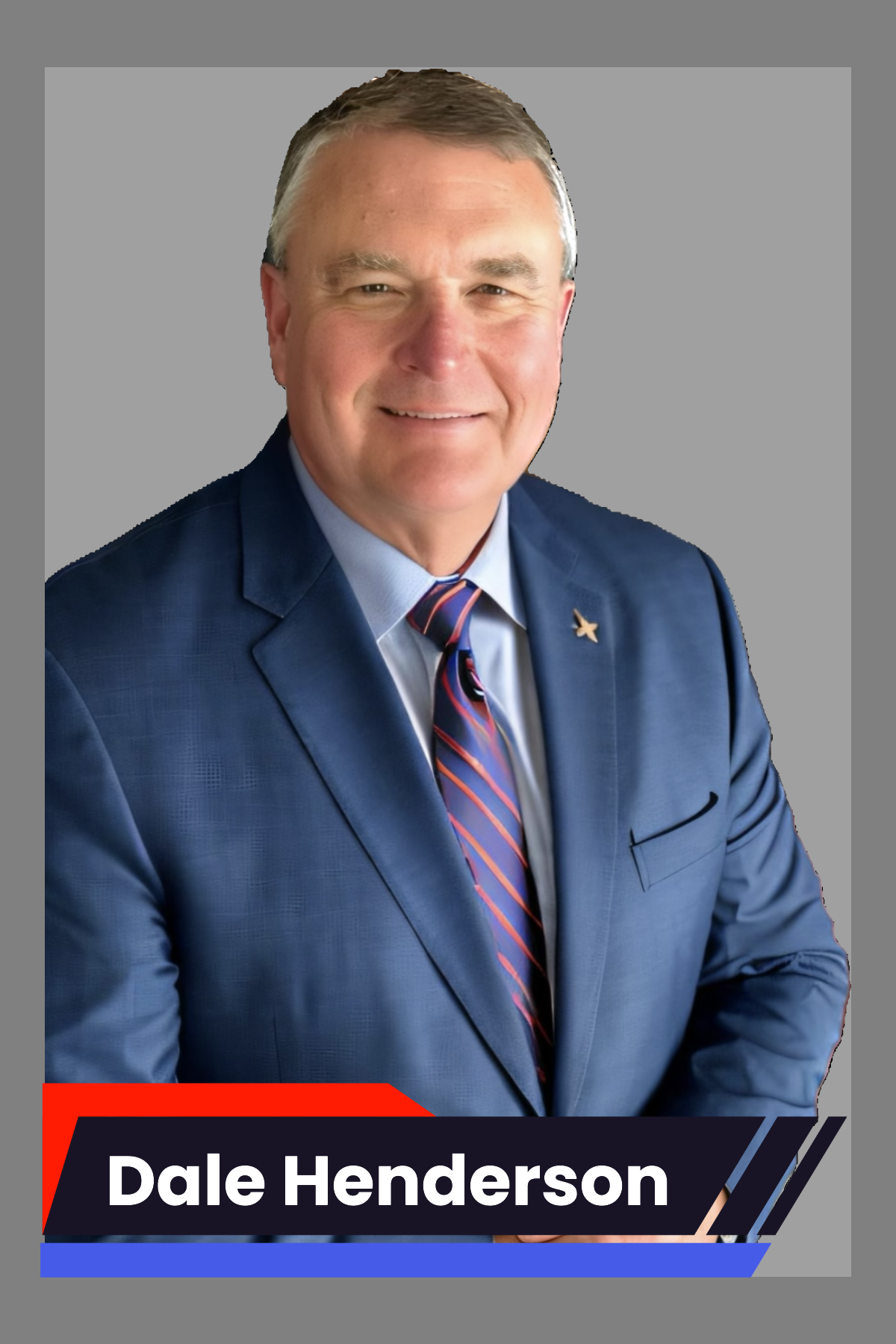
Deputy / Chaplain / Life Coach / Peer Counselor
Dale Henderson is a dedicated Chaplain, Life Coach and Peer Counselor with a deep commitment to serving others. With over 40 years in Public Safety, Mental Health Advocacy and Christian Ministry, Dale brings a wealth of experience to his presentations and coaching. He recognizes the unique challenges faced by First Responders. and their families. Dale is committed to fostering positive change through his work. As the founder of Dale Henderson LLC, he channels his passion into empowering First Responders, their families and the broader Communities and Agencies in which they serve. Dale’s focus revolves around building resilience, integrating life experiences, mitigating stress and facilitating trauma healing. At the heart of his mission lies the commitment to helping individuals navigate life’s complexities, cultivate inner strength and foster holistic well-being. Dale’s approach is grounded in evidence-based practices, guided by compassion and tailored to the unique needs of each client. Through transformative journeys of healing, guidance and growth, Dale aims to lead others in establishing and maintaining lasting personal and professional well-being and resilience.




